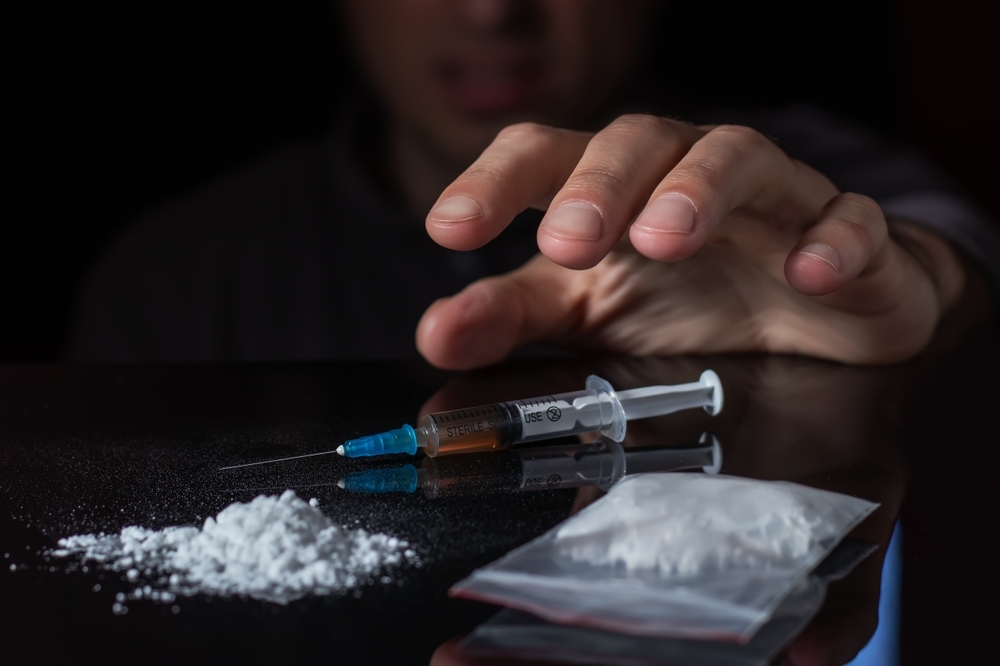
Written by:

Medically Reviewed by:
Last Updated:
February 25th, 2025
Heroin Rehab | Heroin Addiction Treatment
Denial, fear of withdrawal, financial concerns, stigma. These are all common reasons why people suffering from heroin addiction fail to access treatment but heroin rehab can be a truly life-changing experience. If you or a loved one are suffering, know that you are not alone. Linwood House has helped hundreds of people free themselves from the cycle of heroin abuse and our heroin rehab programmes can give you everything you need to achieve lifelong sobriety.
What is heroin rehab?
Heroin rehab is a specialised form of drug rehab that addresses the underlying causes of your condition, helps you to identify triggers for heroin use and provides you with the skills to respond to these triggers in a healthy way without turning to heroin.
The road to heroin recovery takes time, dedication and a helpful and caring support system. Heroin rehab provides you with a safe space, free from temptation or distraction, with 24/7 professional help so that you can take the time to focus on healing and learning about yourself.
As one of our former clients explains:
“Coming to rehab made a huge difference to my life in so many ways, not just in terms of managing my condition but in all aspects of my life…all I can say is go for it – you won’t regret it and it may well just save your life.”
Treatment options for heroin rehab
There are two main options for heroin rehab, outpatient rehab where you live at home and attend a clinic for therapy and inpatient rehab where you live at a clinic for the duration of your recovery programme. Linwood House provides comprehensive inpatient heroin rehab because we believe it is the most effective treatment option.
When residing at a treatment centre like Linwood House, you will be away from any exposure to heroin, will benefits from a change of environment and routine and will be able to focus on recovery without distractions.
Heroin rehab at Linwood House
Heroin rehab at Linwood House begins with heroin detox which breaks physical dependency, allows your body and mind to start healing and provides you with the necessary state to really move forward with your recovery.
Once heroin is out of your system, you will then undergo a range of different therapies to help you understand the reasons behind your condition and explore and discuss thoughts and feelings associated with heroin use. This can help you change your thinking and behavioural patterns and develop healthier coping mechanisms which are vital for living a life free of heroin after treatment.
Heroin rehab accomplishes this through various therapies including:
- 12-step work
- Cognitive behavioural therapy
- Group therapy
- Art and music therapy
- Yoga
- Guided meditation
At Linwood House, we know that heroin can isolate people from their loved ones, making overcoming heroin use even harder. This is why our recovery approach is centred around connection and a pillar of peer support.
Many of our therapists have been through rehab themselves and are familiar with the challenges you are facing. You will also be able to connect with other clients in heroin rehab who are on the same journey, creating an inclusive environment and a trusting family unit that cannot be achieved through outpatient rehab.
We also offer a Family Support Programme, with weekly group sessions designed for loved ones. These meetings can provide your loved ones with essential guidance, provide answers to important questions and help you build a support network.
What happens after heroin rehab?
After leaving Linwood House, we will provide you with one year’s free aftercare to help you overcome any challenges you face when you return home. This involves weekly group therapy sessions which can be crucial for preventing relapse when transitioning back to everyday life.
While residing at Linwood House, you will have the opportunity to attend Narcotics Anonymous (NA) meetings taking place at our facilities and also travel – with transport and support provided – to weekly NA meetings. The introduction to NA can continue once your stay at Linwood House is complete.
We will also invite you to join our Alumni programme which involves message groups, phone calls and regular social events to provide support and a sober community beyond our treatment centre itself.
Do I need heroin rehab?
It is always best to seek help as soon as possible but it is not always easy to recognise the need for treatment. If you are unsure of whether you need heroin rehab, the following questions may help:
- Have you attempted to quit heroin use but found that you couldn’t?
- Do you feel like you need to use heroin to feel normal, or have a need to feel the rush of using heroin?
- Do you socialise only or mostly with others who use heroin or other drugs?
- Have you lied or deceived loved ones about your whereabouts, heroin use or your financial situation?
- Do you spend much of your time obtaining, using or recovering from the effects of heroin?
- Are you neglecting your personal, home or work responsibilities because of your heroin use?
- Have you continued using heroin despite the negative consequences that may have come about due to it?
If the answer to any of these is yes, reach out to our support team to discuss any of your questions and concerns and learn about our various treatment options.
How to prevent heroin relapse
Heroin rehab provides the skills to recognise your triggers, helping you avoid relapse in the future. However, it is important to remember that if relapse does occur, it does not mean you have failed. Relapse can be used to adjust your heroin recovery plan, reevaluate your life and habits and recommit to sobriety.
Some heroin relapse prevention methods, include:
- Attending aftercare sessions
- Staying away from social situations and people who use heroin that could trigger relapse
- Leaning on support systems, such as our Alumni network, friends and family whenever you need extra help
- Taking up new hobbies, volunteering, joining support groups and occupying your time with healthy activities
How to help a loved one in heroin rehab
Heroin use does not only affect the individual but all of those closest to them as well and you may be having a difficult time if you have a loved one going through heroin rehab.
The most important thing when a loved one is in recovery is offering your support and understanding as knowing they are not alone can help them focus solely on their recovery.
Here are some other ways in which you can help:
- Attend family support programmes
- Visit your loved one in heroin rehab and offer your support
- Encourage your loved one to participate in therapies and treatment programmes
- Offer them a safe, sober and supportive home environment when they leave heroin rehab
- Stay in touch with their therapists or counsellors
- Encourage them to attend aftercare appointments and offer to drive them to therapy.
How to start heroin rehab
Heroin can severely harm your physical and mental health and place enormous strain on those around you but heroin rehab can help you take back control of your life. If you are in need of professional heroin treatment, the sooner you receive the help you need, the better.
Contact Linwood House today to find out more about our heroin rehab programmes and start your recovery journey today.




